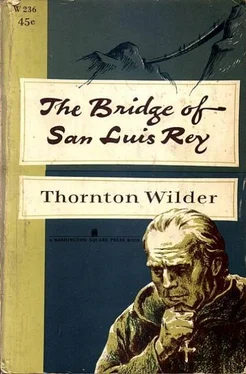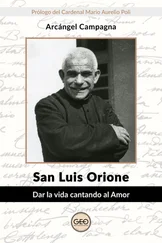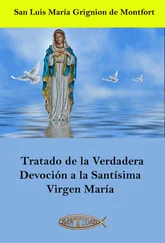She became more and more impatient of acting and another parasite found its way into her mind. She wanted to be a lady. She slowly contracted a greed for respectability and began to refer to her acting as a pastime. She acquired a duenna and some footmen and went to church at the fashionable hours. She attended the prize days at the University and appeared among the donors of the great charities. She even learned to read and write a little. Any faint discrimination against her as a bohemian she challenged with fury. She led the Viceroy a horrible life with her passion for concessions and her gradual usurpation of privileges. The new vice displaced the old and she became noisily virtuous. She invented some parents and produced some cousins. She obtained an undocumented legitimatization of her children. In society she cultivated a delicate and languid magdalenism, as a great lady might, and she carried a candle in the penitential parades, side by side with ladies who had nothing to regret but an outburst of temper and a furtive glance into Descartes. Her sin had been acting and everyone knows that there were even saints who had been actors,—there was Saint Gelasius and Saint Genesius and Saint Margaret of Antioch and Saint Pelagia.
There was a fashionable watering place in the hills not far from Santa María de Cluxambuqua. Don Andrés had travelled in France and had thought to build himself a little mock Vichy; there was a pagoda, some drawing-rooms, a theatre, a little arena for bull-fights and some French gardens. Camila’s health had never known a shadow, but she built herself a villa in the vicinity and sipped the hateful waters at eleven o’clock. The Marquesa de Montemayor has left a brilliant picture of this opéra bouffe paradise with the reigning divinity parading fierce sensitiveness along the avenues of powdered shell and receiving the homage of all those who could not afford to offend the Viceroy. Doña María draws a portrait of this ruler, stately and weary, gambling all through the night in sums that would have raised another Escurial. And beside him she sets the portrait of his son, Camila’s little Don Jaime. Don Jaime, at seven years, was a rachitic little body who seemed to have inherited not only his mother’s forehead and eyes, but his father’s liability to convulsions. He bore his pain with the silent bewilderment of an animal, and like an animal, he was mortally ashamed when any evidences of it occurred in public. He was so beautiful that the more trivial forms of pity were hushed in his presence and his long thoughts about his difficulties had given his face a patient and startling dignity. His mother dressed him in garnet velvet, and when he was able he followed her about at a distance of several yards, extricating himself from the ladies who tried to detain him in conversation. Camila was never cross to Don Jaime and she was never demonstrative. When the sun was shining the two could seen walking along those artificial terraces in silence, Camila wondering when the felicity would begin that she had always associated with social position, Don Jaime rejoicing merely in the sunlight and anxiously estimating approach of a cloud. They looked like figures that strayed there from some remote country, or out of an old ballad, that had not yet learned the new language and had not yet found any friends.
Camila was about thirty when she left the stage and it required five years for her to achieve her place in society. She finally became more stout, though her head seemed to grow more beautiful every year. She took to overdressing and the floors of the drawing-rooms reflected a veritable tower of jewels and scarves and plumes. Her face and hands were covered with a bluish powder against which she drew an irritable mouth in scarlet and orange. The almost distraught fury of her temper was varied by the unnatural sweetness of her address in the company of the dowagers. In the earliest stages of her progress upward she had intimated to Uncle Pio that he was not to be seen with her in public, but finally she became impatient even of his discreeter visits. She conducted the interviews with formality and evasion. Her eyes never crossed his and she angled for pretexts to quarrel with him. Still he ventured out once a month to try her patience and when the call had become impossible he would climb the stairs and finish the hour among her children.
One day he arrived at her villa in the hills and, through her maid, begged for an opportunity to talk with her. He was told that she would see him in the French gardens a little before sunset. He had come up from Lima on a strange sentimental impulse. Like all solitary persons he had invested friendship with a divine glamour: he imagined that the people he passed on the street, laughing together and embracing when they parted, the people who dined together with so many smiles,—you will scarcely believe me, but he imagined that they were extracting from all that congeniality great store of satisfaction. So that suddenly he was filled with the excitement of seeing her again, of being called “Uncle Pio,” and of reviving for a moment the trust and humour of their long vagabondage.
The French Gardens were at the southern end of the town. Behind them rose the higher Andes and before them there was a parapet overlooking a deep valley and overlooking wave after wave of hills that stretched toward the Pacific. It was the hour when bats fly low and the smaller animals play recklessly underfoot. A few solitaries lingered about the gardens, gazing dreamily into the sky that was being gradually emptied of its colour, or leaned upon the balustrade and looked down into the valley, noting in which village a dog was barking. It was the hour when the father returns home from the fields and plays for a moment in the yard with the dog that jumps upon him, holding his muzzle closed or throwing him upon his back. The young girls look about for the first star to fix a wish upon it, and the boys grow restless for supper. Even the busiest mother stands for a moment idle-handed, smiling at her dear and exasperating family.
Uncle Pio stood against one of the chipped marble benches and watched Camila coming towards him:
“I am late,” she said. “I am sorry. What is it you wish to say to me?”
“Camila,—” he began.
“My name is Doña Micaela.”
“I do not wish to offend you, Doña Micaela, but when you let me call you Camila for twenty years, I should think—”
“Oh, do as you like. Do as you like.”
“Camila, promise me that you will listen to me. Promise me that you will not run away at my first sentence.”
At once she burst out with unexpected passion: “Uncle Pio, listen to me. You are mad if you think you can make me return to the theatre. I look back at the theatre with horror. Understand that. The theatre! The theatre, indeed! The daily payment of insults in that filthy place. Understand that you are wasting your time.”
He answered gently: “I would not have you come back if you are happy with these new friends.”
“You don’t like my new friends, then?” she answered quickly. “Whom do you offer me in their stead?”
“Camila, I only remember ...”
“I will not be criticized. I don’t want any advice. It will be cold in a moment, I must go back to my house. Just give me up, that’s all. Just put me out of your mind.”
“Dear Camila, don’t be angry. Let me talk to you. Just suffer me for ten minutes.”
He did not understand why she was weeping. He did not know what to say. He talked at random: “You never even come to see the theatre, and they all notice it. The audiences are falling away now, too. They only put on the Old Comedy twice a week; all the other nights there are those new farces in prose. All is dull and childish and indecent. No one can speak Spanish any more. No one can even walk correctly any more. On Corpus Christi Day they gave Belshazzar’s Feast where you were so wonderful. Now it was shameful.”
Читать дальше












